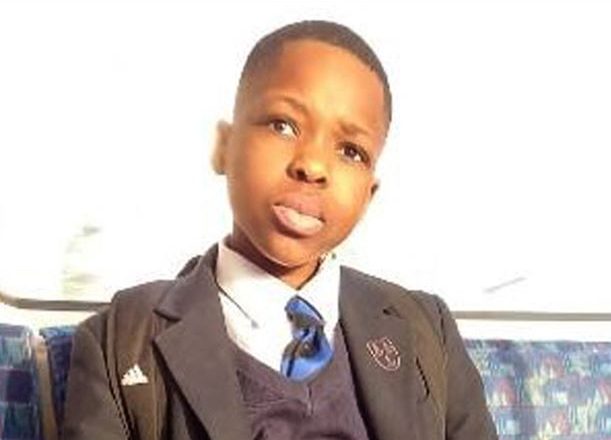In a deeply disturbing development that has shaken both British and Nigerian communities, a Spanish-Brazilian man identified as Marcus Monzo is now facing the prospect of life behind bars for the fatal attack on 14-year-old Daniel Anjorin, a British-Nigerian schoolboy who was murdered in broad daylight on the streets of London.
The tragic incident, which occurred in the east London area, has sparked widespread outrage, drawing attention to the growing concern around knife-related violence in the United Kingdom, particularly those involving minors. Daniel Anjorin, described by his family and school as a bright and gentle student, was walking to school when he was suddenly attacked in what police have labelled an unprovoked and horrifying assault.
According to court proceedings and official police reports, Monzo, armed with a machete and wearing a balaclava, launched a frenzied assault on the young boy. Despite efforts by emergency responders to save Daniel’s life, the teenager sadly succumbed to his injuries. The attack reportedly lasted only minutes but was brutal enough to leave a lasting scar on the community.
Eyewitnesses described the scene as traumatic, noting that the suspect appeared erratic and violent, attacking not only Daniel but also attempting to harm others before being subdued and arrested by Metropolitan Police officers. Authorities have confirmed that Monzo has a history of mental health issues, though investigations are ongoing to determine whether any extremist or racial motivations played a role in the savage killing.
The case has now proceeded to court, where prosecutors have charged Monzo with murder and multiple counts of attempted murder. Legal experts say the gravity of the crime, combined with the age of the victim and the calculated nature of the assault, could lead to a maximum sentence of life imprisonment if the accused is found guilty.
Back in Nigeria, the death of Daniel Anjorin has drawn condolences from both the government and citizens, with many calling for justice and stronger international efforts to protect young people of African descent living abroad. Social commentators have also expressed concern about the increasing vulnerability of Black youths in Western societies, where systemic violence and racial profiling remain pressing issues.
Meanwhile, tributes have continued to pour in for young Daniel from fellow students, teachers, and community members. Candlelight vigils have been held in his memory, and a fund has been launched to support his grieving family, who described the teenager as “a peaceful, God-fearing boy with a bright future ahead.”
As the legal proceedings unfold, many are watching closely to see how the British justice system handles the case, with demands for accountability and a deeper inquiry into how such a tragedy could have occurred in a country known for its extensive surveillance and public safety frameworks.
The heartbreaking loss of Daniel Anjorin serves as a painful reminder of the growing need to address mental health, violent crime, and racial dynamics in modern urban societies, and the urgent call to protect every child, no matter where they come from.
